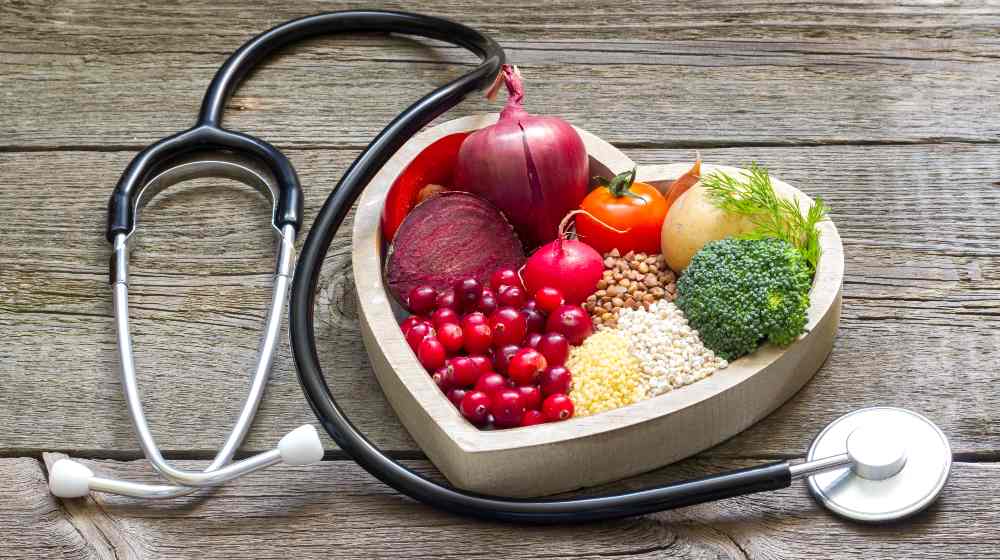Heart disease is the leading cause of death in America, and blood pressure can be a major contributor to heart disease.
Natural blood thinners are foods that help reduce your chances of developing high blood pressure or having a stroke because they naturally thin your blood.
This post will discuss 13 natural blood thinners to prevent heart attacks and keep your body healthy naturally!
Related: 17 Foods to Lower High Blood Pressure Without Medication
13 Natural Blood Thinners to Naturally Prevent Heart Attacks
Click here to jump to the infographic

What Are Natural Blood Thinners
Natural blood thinners are substances that reduce the risk of clots.
Blood clotting is an essential function of the body. But if the blood clots excessively, it can cause problems that are potentially fatal.
Blood clotting or coagulation prevents excessive bleeding when a blood vessel is damaged.
Platelets and proteins in your plasma (the liquid portion of blood) collaborate to stop the bleeding by forming a clot over the damage.
After an injury has healed, your body usually dissolves the blood clot on its own.
But, clots can form on the interior of vessels for no apparent reason or refuse to dissolve naturally after an injury has healed. These instances may be life-threatening.
A blood clot is a seal formed by the blood to stop bleeding from wounds. While they are useful in stopping bleeding, they can obstruct blood vessels and prevent blood from flowing to organs like the brain, heart, or lungs if they develop in the wrong location.
Anticoagulants impede the formation of blood clots. As a result, they're sometimes referred to as “blood-thinning” medications, even though they do not make the blood thinner.
There are a few things found in nature that some individuals believe help prevent clots. They haven't been researched or compared to prescription blood thinners, however.
It's critical to get medical advice before attempting any of these treatments, as they may not be as efficient as medicine and could even compromise the effectiveness of some prescription drugs.
What Foods Are Natural Blood Thinners
The following are some natural blood thinners that can help to prevent the risk of blood clots:
- Garlic
- Ginger
- Turmeric
- Cayenne Pepper
- Cassia Cinnamon
- Parsley
- Black Pepper
- Grape Seed Extract
- Olive Oil
- Cloves
- Ginkgo Biloba
- Vitamin E
- Artichoke
Garlic
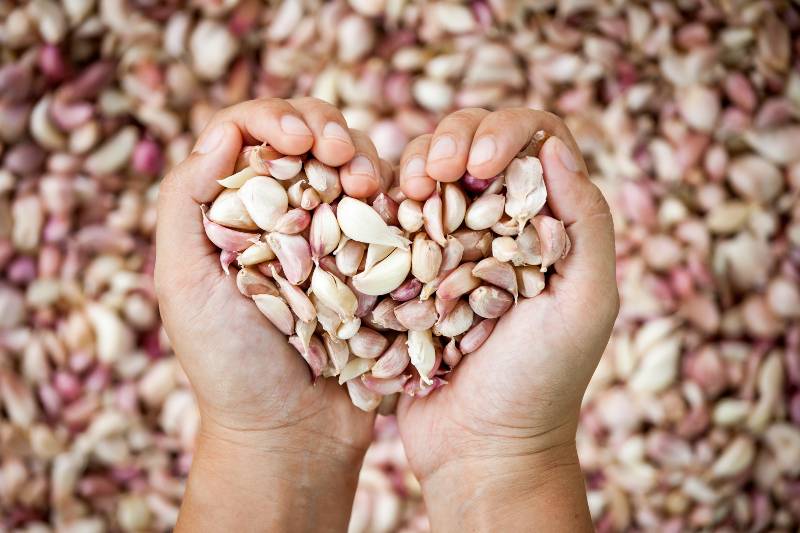
Garlic is high in allicin compound, which gives it its distinct smell. This compound has been shown to help prevent blood clots from forming by thinning your blood, thus reducing the risk of cardiovascular diseases like a heart attack or stroke.
It also prevents platelets from sticking together and causing dangerous blockages!
Many people complain about the smell of garlic, but fortunately, allicin is destroyed when garlic is cooked. If you don't like the taste or smell of raw garlic, try cooking with it or taking a supplement that contains allicin extract.
Taking a supplement containing allicin extract can help if you don't like the taste or smell of garlic.
How to eat more: Add chopped garlic to your favorite dishes or take a supplement.
Tip: If you're preparing a dish with garlic, add it early in the cooking process to allow its beneficial compounds to be best absorbed by your body.
Ginger
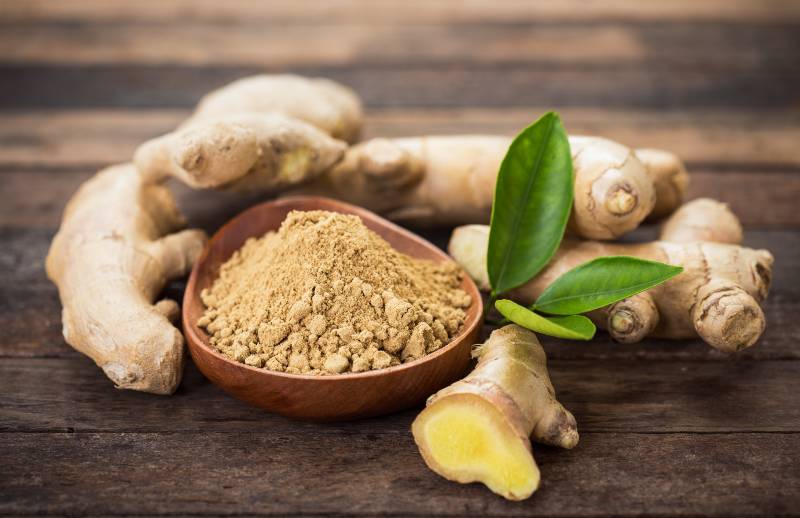
Ginger is a root that has been used as both a medicine and cooking ingredient for centuries. It's high in antioxidants, which help protect your cells from damage caused by free radicals.
Free radicals can cause blood clots to form and stick together, increasing the risk of heart disease and stroke.
Ginger also contains gingerol, an anti-inflammatory compound that may help reduce the risk of atherosclerosis (thickening and hardening of arterial walls). This can decrease your chances of developing heart disease.
Ginger is also a carminative, which means it helps prevent gas from building up in your digestive tract. Excessive gas can increase blood pressure by putting pressure on your heart.
How to eat more: Add fresh ginger to your favorite dishes or drink ginger tea.
Tip: If you're not a fan of the taste of ginger, try adding it to tea. Tea is a great way to get the benefits of ginger without having to eat it raw.
Turmeric
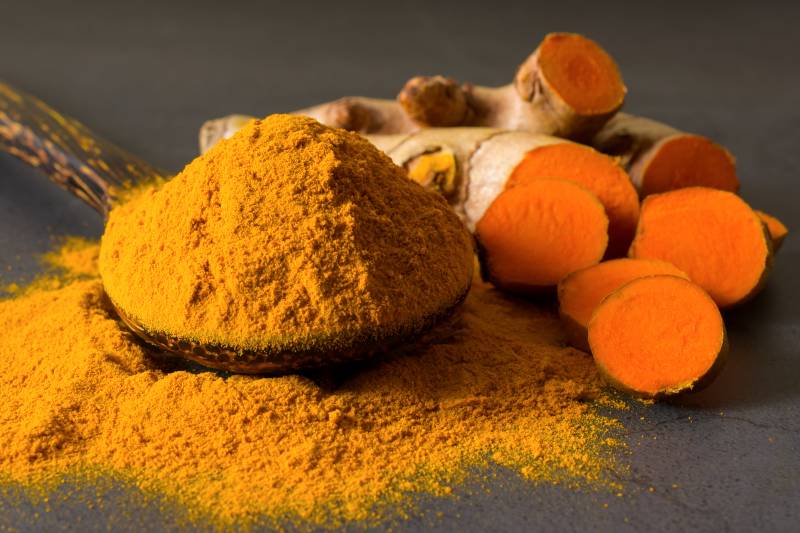
Turmeric is a spice part of the ginger family and has been used for culinary and medicinal purposes in India for thousands of years.
It contains curcumin, which research suggests may help reduce your risk of heart disease by preventing blood clots from forming.
This powerful compound also works as an anti-inflammatory agent to prevent too much plaque in your arteries. This can lower your blood pressure and reduce strain on the heart by allowing it to pump more efficiently.
How to eat more: Add turmeric powder or freshly grated turmeric root to curry dishes, soups, smoothies, rice dishes, lentil spreads, marinades for meat & fish, or salad dressings.
Tip: Turmeric is a great way to add flavor and nutrition to your favorite dishes. If you're not used to the taste, start adding it in small amounts and work your way up.
Cayenne Pepper
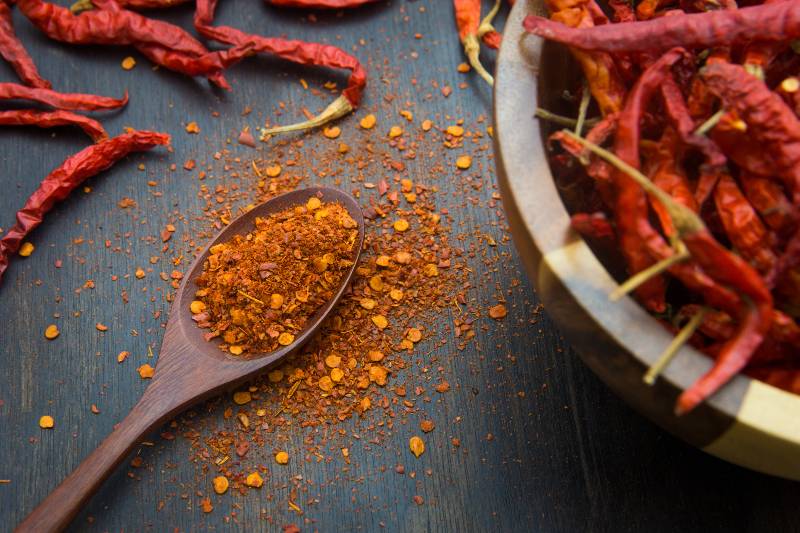
Cayenne pepper is a spicy chili pepper that contains capsaicin. This compound has been shown to help reduce the risk of heart disease by preventing blood clots from forming and reducing inflammation.
It also helps improve circulation, increasing the delivery of oxygen and nutrients to your heart muscle. This can strengthen your heart and lower your blood pressure.
How to eat more: Add cayenne pepper powder or flakes to your favorite dishes, such as chili, soup, rice, and egg dishes.
Tip: If you're not used to the heat of cayenne pepper, start by adding a small amount and work your way up. You can also try mixing it with other milder spices to lessen the heat.
Cassia Cinnamon
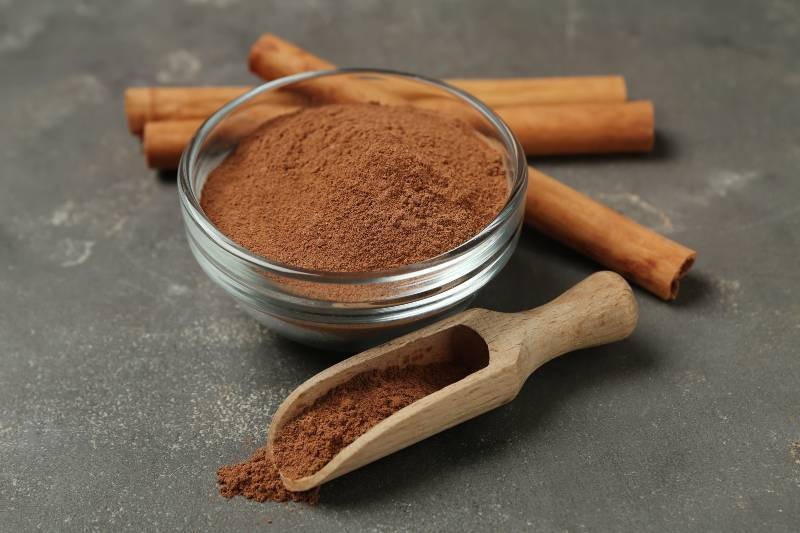
Cinnamon, a popular baking spice, is high in anti-inflammatory and antioxidant compounds.
These properties make it beneficial for heart health by preventing inflammation and blood clots from forming.
This lowers your risk of atherosclerosis (thickening and hardening of arterial walls), increasing your chances of having a stroke or heart attack.
How to eat more: Add cinnamon powder or sticks to your favorite hot drinks, such as tea, coffee, and cocoa. You can also add it to sweet dishes like oatmeal, cereal, yogurt, cottage cheese, and smoothies.
Tip: If you're using ground cinnamon, store it in an airtight container to preserve its flavor.
You can also add it to sweet dishes like oatmeal, cereal, yogurt, cottage cheese, and smoothies.
Be sure to store ground cinnamon in an airtight container to preserve its flavor.
Parsley
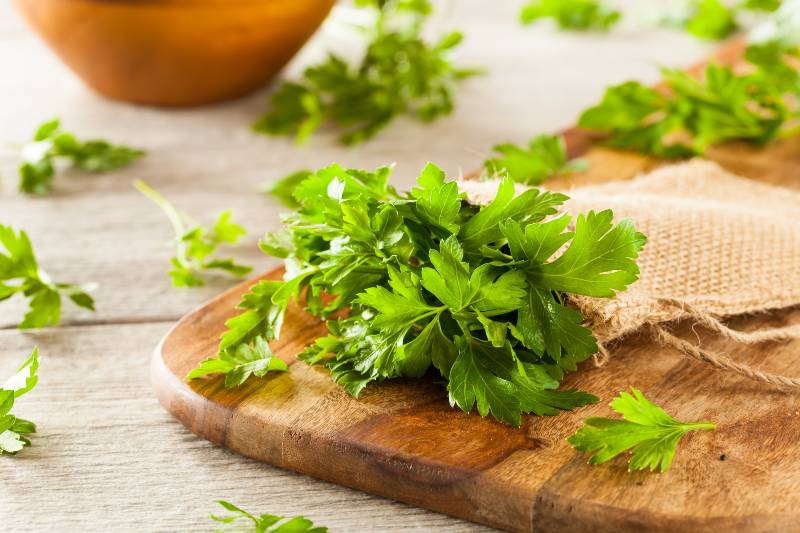
Parsley is a popular herb high in vitamin K. This important nutrient has been shown to help reduce blood clots by preventing your body from producing too many of the proteins involved with clotting, which can increase your risk of heart disease and stroke.
It also contains apigenin, an antioxidant compound that may protect artery walls from damage due to high blood pressure.
How to eat more: Parsley is a great addition to salads, soups, and pasta dishes, or try putting it in your favorite smoothies. You can also make parsley tea by adding freshly chopped leaves (stems are fine) to hot water.
Tip: Be sure to eat fresh parsley rather than the dried variety, which offers less nutritional value.
Black Pepper
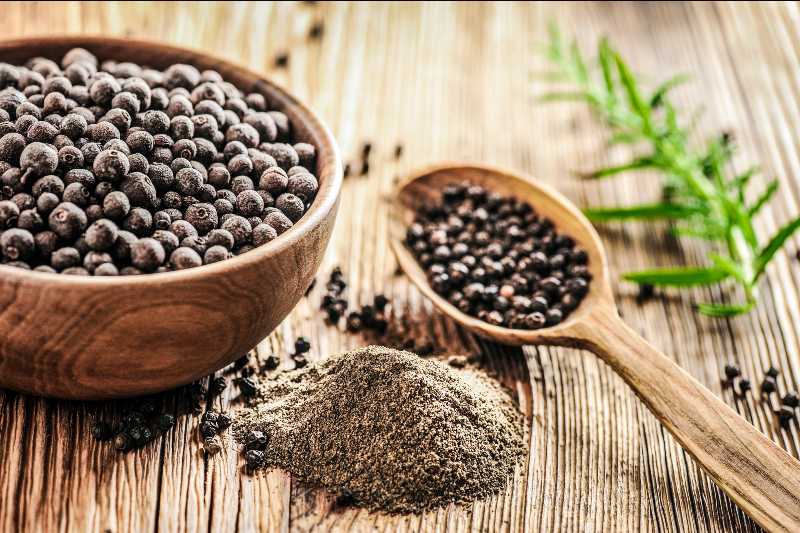
Black pepper is a spice that contains piperine, an antioxidant compound with anti-inflammatory properties.
This can reduce your risk of heart disease by preventing blood clots from forming and lowering inflammation in your arteries. It also helps prevent high blood pressure, a common risk factor for heart disease.
How to eat more: Add black pepper powder to your favorite dishes, such as chili, soup, rice, and egg dishes. You can also try adding it to olive oil or vinegar and use it as a salad dressing.
Tip: Be sure to grind fresh black pepper before using it for the best flavor.
Grape Seed Extract
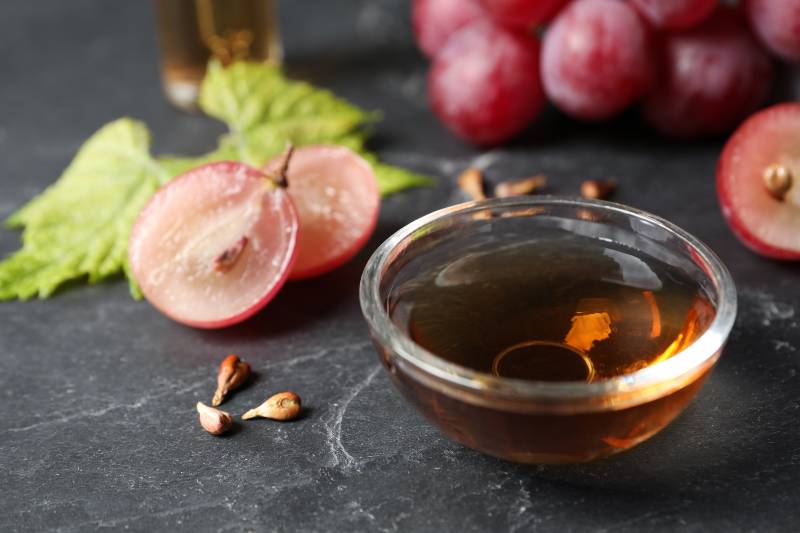
Grapeseed extract is a natural compound that's high in antioxidants. These compounds scavenge harmful toxins and byproducts that can damage your heart tissue and increase your risk of heart disease.
They also help improve blood circulation, reducing the strain on your heart muscle.
The grape seed extract is usually well-tolerated in small amounts. In human studies, it has been tested for up to 11 months without causing any serious problems.
If you have a bleeding disorder or are about to undergo surgery and take anticoagulants (blood thinners), such as warfarin or aspirin, it's probably unsafe to take this.
How to eat more: You can find grape seed extract as an ingredient in some drinks and foods, such as smoothies. You can also purchase grape seed extract supplements to take by mouth or add the powder form to your favorite dishes.
Tip: Grape seed extracts containing high procyanidin levels may be more beneficial than those with lower concentrations. Look for a brand that provides at least 75 milligrams of procyanidins per serving.
Olive Oil
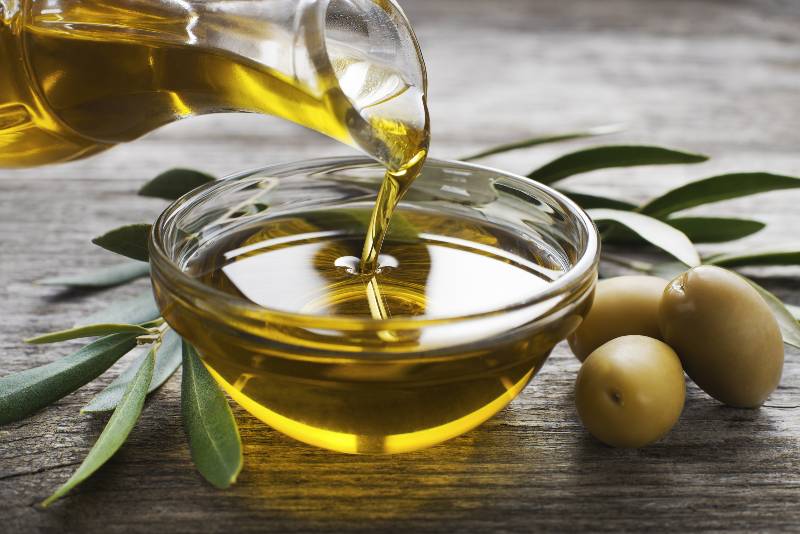
Extra-virgin olive oil is a type of healthy fat high in monounsaturated fats, antioxidants, and polyphenols.
These nutrients work together to reduce inflammation and improve blood flow, which can help protect your heart from damage. Monounsaturated fats may also help lower your cholesterol levels, a major risk factor for heart disease.
Eat more: Use olive oil as a salad dressing or dip. You can also cook with it or add it to smoothies and shakes.
Tip: Be sure to choose extra-virgin olive oil, which has the most antioxidants and the lowest levels of oleic acid.
Cloves
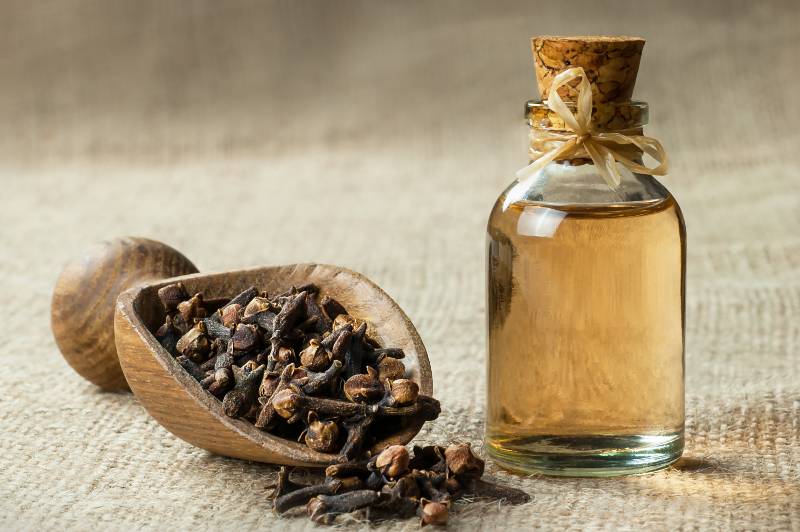
Cloves can help reduce inflammation and blood pressure levels. It may be due to the high amount of antioxidants in cloves, including eugenol, which has been shown to have anti-inflammatory effects on your body.
Clove oil is also a natural remedy for toothaches because it contains compounds that relieve pain and fight bacterial infections.
How to eat more: Try adding ground cloves to your favorite dishes, such as curries, rice, and meat dishes. You can also make tea by boiling water with fresh or dried cloves for a few minutes.
Tip: When buying whole cloves, be sure they're fragrant and plump, not dry and brittle.
Ginkgo Biloba
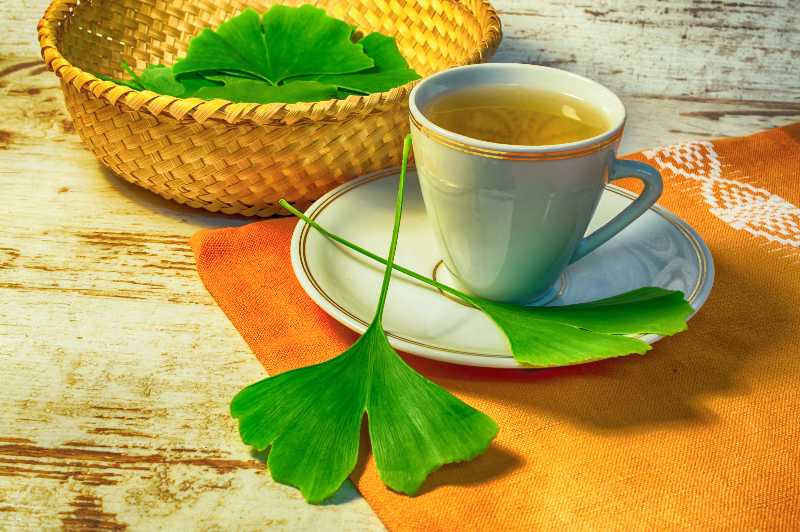
Gingko Biloba is a tree native to China. Its leaves contain flavonoids and terpenoids, antioxidants that help prevent blood clots from forming (thrombosis).
They may also reduce the risk of high blood pressure, lower your cholesterol levels, improve circulation in your heart muscle, and increase your brain function.
How to eat more: You can add fresh ginkgo Biloba leaves to your favorite dishes, such as salads and stir-fry meals. Dried leaves are also available in tea bags or capsules to make tea or take by mouth.
Tip: Be sure not to confuse this herb with the similar-sounding poison ivy!
Vitamin E
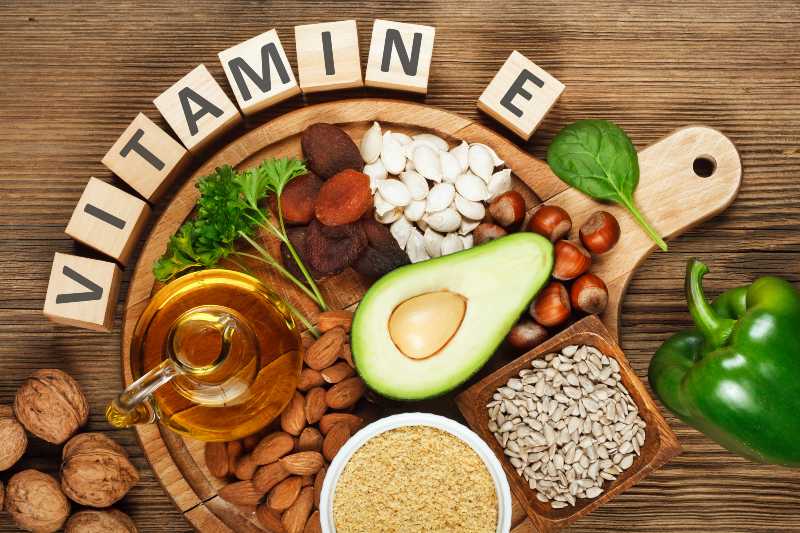
Vitamin E is a fat-soluble vitamin that helps protect your heart and blood vessels by preventing the formation of harmful free radicals.
These molecules can damage your cells, including the cells in your arteries that make up your circulatory system. Vitamin E may also help improve cholesterol levels and reduce inflammation.
How to eat more: Eat foods high in vitamin E, such as almonds and sunflower seeds. You can also look for vitamin-E enriched foods like whole-wheat bread and peanut butter or take a supplement by mouth.
Tip: Natural sources of vitamin E contain other powerful vitamins that work together to protect your cells from damage.
Artichoke
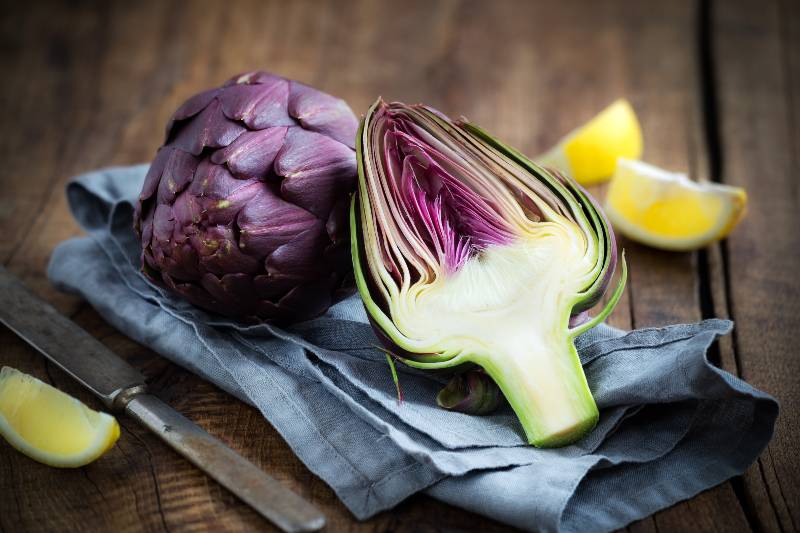
The heart benefits of artichokes come from a compound called cynarin. Cynarin helps improve blood flow and protect the heart from damage caused by free radicals.
It also helps reduce cholesterol levels and inflammation, making it a heart-healthy vegetable to add to your diet.
How to eat more: Eat cooked or raw artichoke hearts as part of a salad or vegetable dish. You can also add them to soups or stews.
Tip: Look for artichokes with tight leaves and a dark green color. Avoid those with brown spots or signs of wilting.
Many factors can contribute to a healthy heart. Diet, exercise, and stress levels all play a part in the health of your cardiovascular system. Natural blood thinners can help protect your heart from damage and prevent clots from forming, as long as you eat a healthy diet with lots of fresh foods from these 13 options.
Here's an infographic guide that you can use. Feel free to download, save and share it with your loved ones: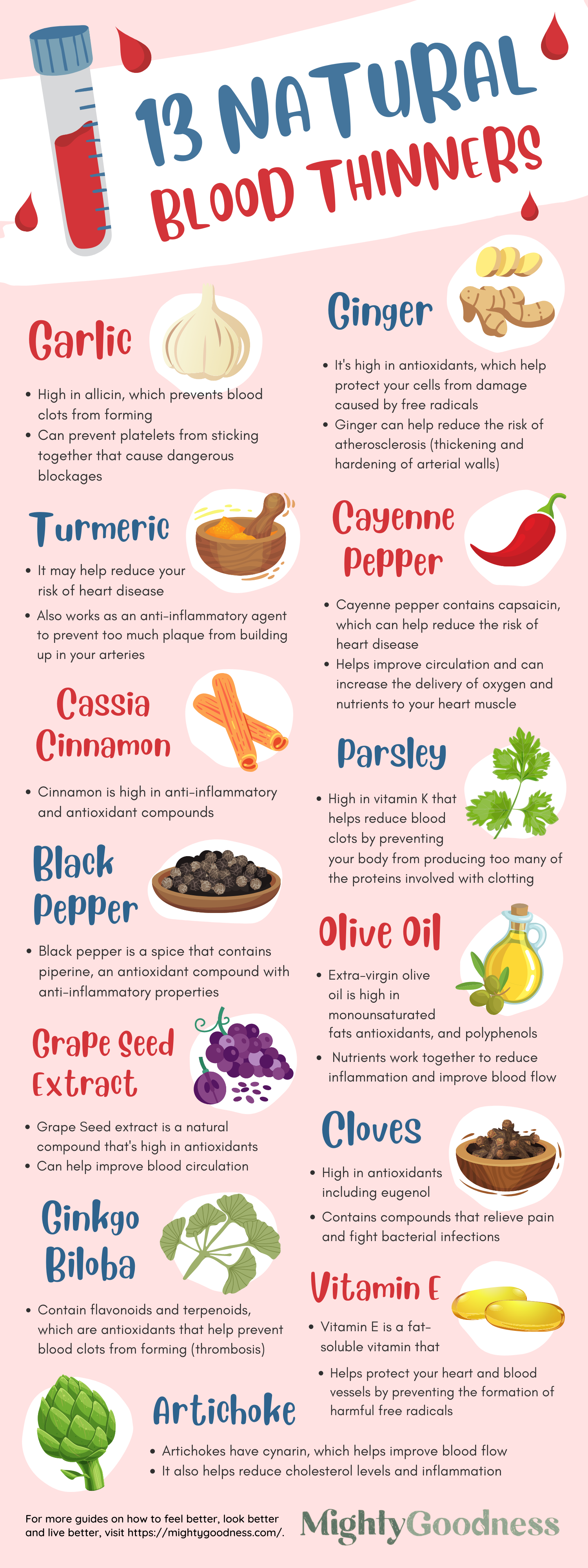
Check out this video of Bright Side for 15 Foods That Reduce Your Heart Attack Risk According to Doctors:
Additional Tips:
- Discuss any dietary supplements or herbal remedies with your doctor before using them independently.
- Aim for a healthy weight and exercise regularly to reduce your risk of heart disease.
Although the foods above can help keep your heart healthy, you should also focus on maintaining a healthy weight and exercising regularly. These lifestyle changes have been associated with a reduced risk for heart disease and other health complications.
I hope that this list of 13 natural blood thinners has been helpful in your search for ways to protect and maintain a healthy heart. Good luck with your heart health journey!
Have you tried any of these natural blood thinners? Do they work for your heart health? Please share with us in the comment section below.
You Might Also Like:
Trending
Best Multivitamin for Men | Top 10 Best Multivitamins for Men 2022
Tongue Color | 7 Scary Tongue Color Meanings
Get Updates
SIGN UP FOR OUR NEWSLETTER TODAY


Best Multivitamin for Men | Top 10 Best Multivitamins for Men 2022

